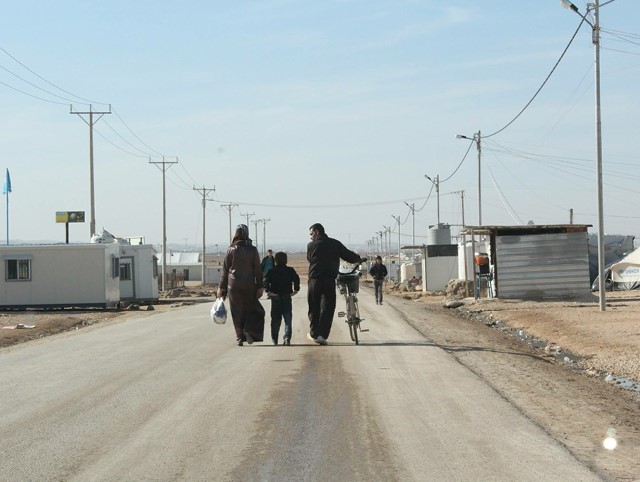A Different Kind of Camping Part I: Volunteering in Syrian Refugee Camps

My name is Sarah and I’m an intern at CDPHP, as well as a student at Union College. This six-part blog series is a reflection on my two trips to Jordan and how I attempted to make a difference in a sea of overwhelming humanitarian need. I’m dedicating it to each of the mothers, daughters, fathers, and sons I had the honor of working with. By the end of the series, I hope you will be able to see these refugees the way I do: as humans who have been forced into a life they never would have imagined, and as people who need our compassion and understanding.

Impossible Choices
Every day we make choices, from what to eat for lunch, to the fastest way to get to work. Occasionally we make big, important decisions, such as which college to attend or which house to buy. On the other side of the world, more than 5 million people, a little less than half of Syria’s entire population, had to make impossible choices. Mothers have put their children in the hands of strangers, hoping for just the slightest chance that they’ll be safe. Others have been forced to leave their loved ones behind to face a war they didn’t choose to fight. Most of us can’t relate to this harsh reality and are lucky to have never been confronted with those decisions.
My own parents were Palestinian refugees who fled violence just like the Syrians on the news. They also made the choice to leave everything behind for my safety. After hearing my mother’s native tongue on television, I knew I needed to help. This past year, I have spent more than six months in Jordan along the Syrian border, helping refugees who could have easily been me.

How It All Began
In 2012, when I first decided to head to Jordan, I had no idea what I was doing. Finances aside, who would I work with and how would I actually help out? I didn’t actually travel to Jordan until the winter of 2014, and I’m sure I annoyed everyone around me with my incessant planning.
Though it took a while, eventually everything was settled and I was ready to take the leap. I received an Independent Study Abroad Grant from my school to cover my living and travel expenses. More importantly, I found an NGO (non-governmental organization) that I was qualified to work for and could advocate on my behalf. Because the relief efforts are so enormous and the need so great, volunteers with applicable skills and who can communicate with Syrian refugees are especially sought after. This can be disheartening for the numerous humanitarians who travel to Jordan to help and find there is very little they can actually do.
I worked as an EMT (emergency medical technician) and a project manager for two different NGOs. I have always loved the health care field because it enables me to ease the suffering of others, irrespective of politics, religion, or economic class. What I learned while I was in Jordan was that I was very naïve and that there is an astounding number of agendas and clashes that can interfere with caring for refugees. Even though I intended to only work as an EMT, I found myself wrapped up in the bureaucracy while attempting to give the best, most efficient care possible.
Just Like You and Me
Caring for refugees is difficult because they are inherently politicized. Everyone, including myself until recently, speaks of them in generalized, broad strokes. They speak of them as political fodder, an economic burden, or even a great big scary threat rather than as human beings. Each Syrian I had the honor of working with has hopes, futures, and dreams just like our own. I am so grateful that I had the opportunity to hear their stories and give them the care they needed.
Read more about Sarah’s work with Syrian refugees in Part II.
 The Daily Dose
The Daily Dose
Comments are closed.